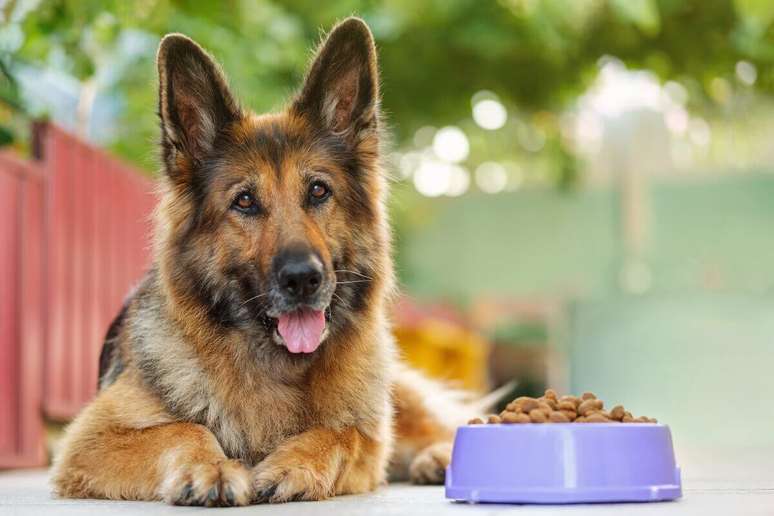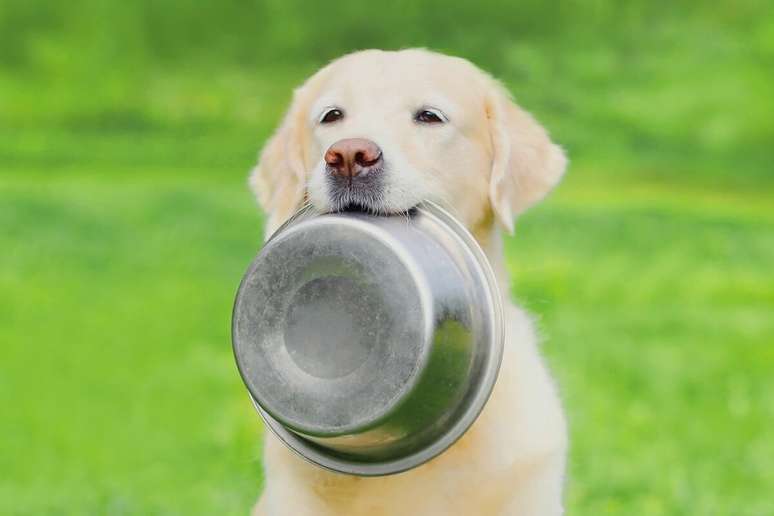Find out how important some measures are to avoid excessive weight gain
Obesity in dogs is a disease defined as the excessive accumulation of fat in the body, exceeding that considered normal for their size and physical constitution. Furthermore, it constitutes a risk factor for various other pathologies, mainly cardiovascular and respiratory problems and also predisposes to joint pain.
Poor nutrition, sedentary lifestyle, castration and genetic predisposition are among the main causes of overweight in pets. However, the habits adopted by owners are also among the main causes of obesity.
“The main cause is a poor diet combined with a sedentary lifestyle. However, some diseases such as hypothyroidism, common in dogs, and adrenal gland disorders also lead to obesity,” adds veterinarian Dr. Luiz Fernando Ferreira.
Next, check out 7 habits that can make your dog obese!
1. Eating too much
Give larger portions than necessary or feed the cub Too many snacks can lead to excess calories, which contributes to weight gain. To avoid this, follow your veterinarian’s instructions regarding the portion and frequency of food appropriate for your dog’s size and activity level.
2. Lack of exercise
Lack of regular exercise can lead to weight gain and lack of fitness in dogs. Therefore, the owner must provide the pet with sufficient activity, which can take the form of walks, outdoor games or targeted exercise sessions. “For the dogs, [é indicado fazer] a 20-30 minute walk […]”, recommends Dr. Luiz Fernando Ferreira.
3. Inadequate nutrition
Offer low-quality or unsuitable food for children nutritional needs of the animal It can lead to excess weight and a lack of essential nutrients. “If the food chosen by the owner is not ideal for him, there are other suggestions on the market for different activity levels, specific to breed and even for neutered animals,” explains Thaís Matos, veterinarian at DogHero. Therefore choose balanced, quality foods, avoiding giving your dog human food scraps.

4. Lack of portion control
Leaving your dog’s food always available or allowing him to eat excessively during meals contributes to weight gain. Therefore, it is important to control food portions and establish regular feeding times.
“Dog food should be [oferecida] two or three times a day, following the manufacturer’s recommendations. Never leave free dog food […]”, teaches Dr. Luiz Fernando Ferreira.
5. Ignore hunger cues
Barking, whining or a “pleading” look does not always represent a request for food from the dog. In this sense it is important to learn to distinguish between real hunger and hunger behaviors to seek attention, with the aim of avoiding overfeeding the dog.
6. Excessive rewards
Although the practice of using snacks during training is beneficial, an excess of these foods can cause weight gain. So opt for healthy, low-calorie rewards, such as pieces of vegetables, or exchange them with affection and play.
7. Lack of veterinary care
Don’t take your dog to the vet regularly for health checks Health and weight can cause obesity problems. Therefore, it is essential to consult your professional regularly to discuss any concerns regarding your dog’s health or weight.”[…] The veterinarian can indicate the ideal diet, even if it includes dietary foods”, advises veterinarian Thaís Matos.
Source: Terra
Ben Stock is a lifestyle journalist and author at Gossipify. He writes about topics such as health, wellness, travel, food and home decor. He provides practical advice and inspiration to improve well-being, keeps readers up to date with latest lifestyle news and trends, known for his engaging writing style, in-depth analysis and unique perspectives.







